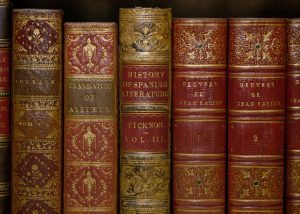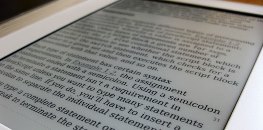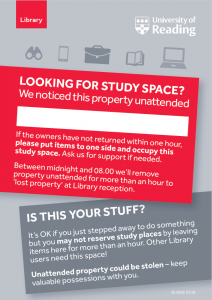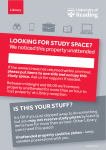Are you planning your dissertation? You might want to consider using the University’s Special Collections of archives, manuscripts and rare books.
Why use Special Collections?
 Our collections include rare books, manuscripts, records, letters, photographs, maps and drawings. Using this type of material can add a unique dimension to your work and enliven your dissertation. You could, for example, encounter the annotations of previous readers in a book and discover what they thought of a text, get a glimpse of the inner workings of a farm or a publishing company by looking at their records, or find out how new discoveries in your discipline were communicated and disseminated at the time. You are also much more likely to produce original research, which will help you gain you a better mark, and you will develop valuable research and critical thinking skills.
Our collections include rare books, manuscripts, records, letters, photographs, maps and drawings. Using this type of material can add a unique dimension to your work and enliven your dissertation. You could, for example, encounter the annotations of previous readers in a book and discover what they thought of a text, get a glimpse of the inner workings of a farm or a publishing company by looking at their records, or find out how new discoveries in your discipline were communicated and disseminated at the time. You are also much more likely to produce original research, which will help you gain you a better mark, and you will develop valuable research and critical thinking skills.
Walking into Special Collections can sometimes seem daunting – but it doesn’t have to be! We’re helpful folk down here, and we’re always happy to get you started. The University’s Special Collections are available for all students in the University, and you can access over 150 important collections covering a wide range of arts and humanities, science and social science discipline areas.
In the past, students have used Special Collections to research a wide range of subjects, including:
 Mills & Boon romantic fiction
Mills & Boon romantic fiction- Botanical illustration
- Robinson Crusoe
- The publishing industry
- The history of mathematics
- Beekeeping
- Farming records
- Women’s history
- Children’s literature
- Architectural history
Finding items on your research topic
 You may be surprised at the variety of material you can access to support your research! See the A-Z list of collections or our list of featured items for a flavour of what’s available.
You may be surprised at the variety of material you can access to support your research! See the A-Z list of collections or our list of featured items for a flavour of what’s available.
Try the following to see if there is useful material for your research project:
- Search our collections on Enterprise. Select Special Collections and MERL from the drop-down list under ‘Choose a collection’.
- To find material on agriculture and rural life search the MERL online database.
- Search the collection descriptions using the category or keyword search facility, or browse the A-Z list of collections. These pages will also tell you how each collection is catalogued.
- Explore Special Collections’ Undergraduate Dissertation Subject Explorers for History, English and Landscape Architecture for ideas.
- Contact one of the Archivists or Special Collections Librarians for help, especially if you’re looking for potential ideas for your dissertation.
- Discover which archive and rare book collections are available beyond the University of Reading
Using Special Collections
 Items from our collections cannot be borrowed, but they can be consulted in our reading room. You’re advised to plan ahead and contact Special Collections prior to your visit, so that we can have the material ready for you for when you arrive. We are based on the London Road campus, in the same building as the Museum of English Rural Life.
Items from our collections cannot be borrowed, but they can be consulted in our reading room. You’re advised to plan ahead and contact Special Collections prior to your visit, so that we can have the material ready for you for when you arrive. We are based on the London Road campus, in the same building as the Museum of English Rural Life.
Go to the Special Collections website for more useful information on using the service.
This is one of a series of tips to help save you time and effort finding or using information.
This tip was written by Erika Delbecque & Fiona Melhuish, Special Collections Librarians.



 Please help us share the study space in the URS building fairly. It is fine to pop over to the Library building for a book and return to your desk within a short time. However, we think it unfair for students to reserve desks with their belongings for long periods when other students want to use that space.
Please help us share the study space in the URS building fairly. It is fine to pop over to the Library building for a book and return to your desk within a short time. However, we think it unfair for students to reserve desks with their belongings for long periods when other students want to use that space.

 Here’s some info to help all you students, working hard on assignments/projects/dissertations/revision, find study space facilities across campus.
Here’s some info to help all you students, working hard on assignments/projects/dissertations/revision, find study space facilities across campus. The Library can provide you with access to a wealth of statistics covering a wide range of countries and subject areas.
The Library can provide you with access to a wealth of statistics covering a wide range of countries and subject areas. Help make the Library work effectively by respecting everyone’s right to resources and limited space. It can be as easy as checking when your Library loans are due back or clearing a desk space for other users. And don’t forget there are alternative study spaces on campus too.
Help make the Library work effectively by respecting everyone’s right to resources and limited space. It can be as easy as checking when your Library loans are due back or clearing a desk space for other users. And don’t forget there are alternative study spaces on campus too.